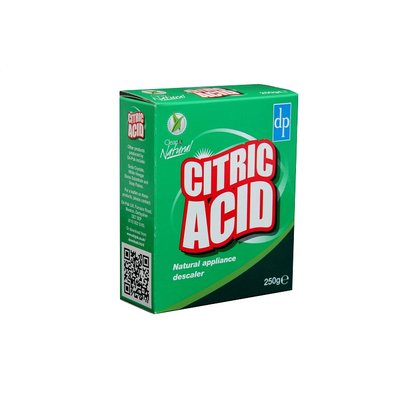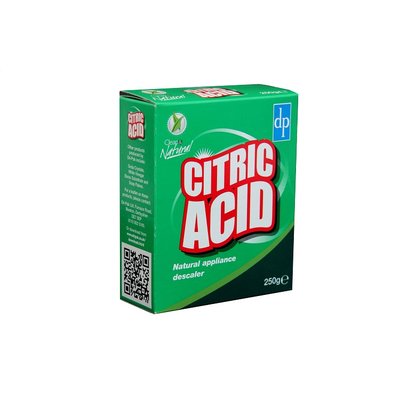Citric Acid
Citric Acid
Couldn't load pickup availability
A cost-effective limescale remover for your appliances. Citric Acid is part of the non-toxic ‘Clean and Natural’ Range and is a descaler that’s made of natural acid found in citrus fruits. By keeping appliances free of limescale, less electricity is required to operate them and they will have a longer service life. Citric Acid can be used as a substitute for white vinegar. It’s also better for the environment as it’s using less plastic and you’re not paying for the water that makes up 94-96% of the volume. Here’s how to use citric acid as a white vinegar substitute.
Using Citric Acid around the home
Much of the UK has some degree of hard water and it is very hard in the east and south east of England. The white deposits that build up on kettle elements are perhaps the most recognisable signs of limescale. They can also be found on taps, shower-heads and even in toilet bowls and the grout between tiles. There are also limescale deposits that can’t be seen – such as in coffee machines, washing machines, steam irons and the heating elements of sterilisers for babies’ bottles.
To protect your appliances, descale them regularly to prevent build-up. The harder your water, the more regularly this will need to be done. Once limescale has built up to severe levels, the appliance can break down altogether. Here are the instructions for cleaning a dishwasher.
For kettles, simply pour some citric acid into the kettle – about a tablespoon full and add about an inch worth of water, so that the element or base plate is covered with water. Switch on the kettle and as it heats up, you will see the limescale fizzing as it reacts with the acid. You can turn the kettle off before it reaches the boil. If the fizzing stops and there is limescale remaining, then repeat the process until all limescale is removed. Usually it will be gone 1st attempt. Discard the water, rinse out the kettle a couple of times.
Top Tips
TOILET BOWLS
Dri-Pak Citric AcidThe brown deposits you may see in toilet bowls (no jokes please!) are also limescale, but coloured by other deposits within the water such as iron. Follow these steps to remove the unsightly stains:
- Pour a bucket of hot water down the toilet.
- Wait for it to drain, then pour in another bucket of hot water (Alternatively, plunge the bowl with a toilet brush until most of the water has gone and then pour in a bucket of hot water)
- Add half a packet of citric acid; the hot water should help activate the reaction between the alkaline limescale and the citric acid; you may even see it fizzing
- Leave for at least an hour or preferably overnight
- Repeat the process if necessary or use a stiff toilet brush to remove the loosened limescale.
Dri-Pak Citric AcidFor routine cleaning, simply sprinkle Soda Crystals into the bowl and scrub with a stiff toilet brush. Avoid the use of most store bought toilet cleaners that are harmful to aquatic life. Alternatively, make your own ‘toilet fizzies’.
CLOUDY GLASSES
If your drinks glasses are cloudy, the chances are that it’s caused by hard water mineral deposits. Simply make a hot solution of citric acid and leave them to soak for 10 mins before washing as normal. If the problem isn’t resolved, it’s likely that the surface has been ‘etched’ over time and generally not salvageable.
SHOWER-HEADS
The holes can easily become blocked resulting in poor water flow. If the shower-head can be removed, soak it in a bowl of hot water with citric acid. Leave for 10 mins then wipe with a cloth and force water through the holes to clear out any remaining limescale. If the head can’t be removed, pour the hot solution into a plastic bag and secure with an elastic band and follow the same instructions.
- Size: 250g


